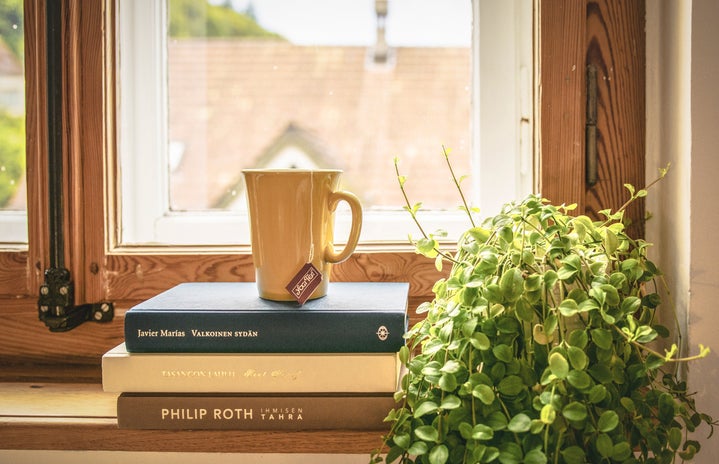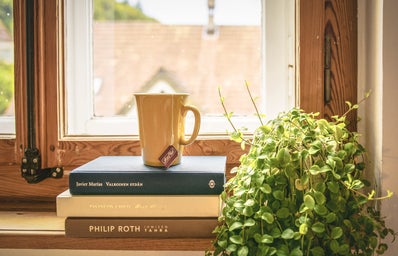This week we spoke to Sian Norris, feminist activist and also creater of The Bristol Women’s Literature Festival. Hear what she had to say about the festival and women in the literary world..
So Sian, you are the founder and director of the Bristol Women’s Literature Festival, so how did it all come about?
I used to co-ordinate the Bristol Feminist Network for six years and one of our projects was called ‘The representation of women in media’. We concluded that women in media were either viewed solely as sexualised objects or otherwise they just weren’t there at all. In 2011 I worked on an event at Watershed with Dr. Sue Tate and journalist, writer and broadcaster, Bidisha which was called ‘Where are the Women’. It explored the absence of women in popular culture. It turned out to be an extremely successful event, people were desperate to get tickets. There happened to be a literary festival going on at same time which was notably male-dominated. Bidisha suggested to me that I should do a literature festival for women and I said yes and that’s how it happened! A year later I started putting plans together and then in 2013 we had the first festival and Bidisha chaired whole thing which was fantastic.
You are a writer yourself, do you feel that there is a definite sense of male dominance in the literary world?
I think that things have definitely got better since 2011 in literary world and it’s exciting to see that. In 2010 there was a lot of research which found a huge disparity on The Man Booker Prize list and the Samuel Johnson prize for non-fiction. But, since then, the Booker prize has obviously been won by Hilary Mantel twice and The Costa Prize had an all women short list for first time. So there has been a definite shift but obviously there are still problems. As much as there have been positive changes, a lot of work still needs to be done and the festival is part of that.
How did you go about deciding which speakers to choose?
Badisha had a lot of connections with speakers which was very helpful. It was also a case of talking to women writers online, for example Stella Duffy. But, mainly, I had to ask myself who do I want to see and hear talk? Because, if you’re not interested yourself then you can’t sell it to anybody. I’m so pleased with the fantastic line-up and I’ve had lots of people getting in touch with me about wanting to speak due to success in 2013 so that’s really exciting. We’ve got a great range of panels and definitely something for everyone: historical and contemporary; journalists; activists; academics and many more! It’s a real celebration of women writing in all kinds of different forms.
How do you think you really started to be aware of feminism and indeed consider yourself a feminist?
Well it’s interesting you say that because I actually published a book called ‘The Light Bulb Moment’ which is an anthology to share experiences of how women (and men) got into feminism. I definitely considered myself to be a feminist when I was a teenager and also as a student I always read feminist books and wrote feminist essays but I didn’t do anything beyond that until I moved back to Bristol. I organised Lady Fest in 2007 which is an international movement that started in Washington. It was a festival of women musicians and artists and we had various gigs, DJ nights, free art exhibitions, work shops and panel discussions. Out of the festival came the Bristol Feminist Network and that’s how I got involved in feminist activism. I’ve always been aware of discrimination and I used to do a lot of anti homophobia campaigning at school which sort of and moved into feminism.
There is a stigma in society that feminists tend to be hysterical and irrational, what do you say to that?
Well I would say that everything feminists say is emotional but actually that’s okay! I’ve been blogging for a long time and people often say that I’m being hysterical but the reality is, I’m talking about violence against women and that is an emotional subject. Emotional is not the opposite of rational.
Why do you think this literature festival might be particularly relevant to Bristol students?
If you’re studying English literature, obviously it’s very relevant for you. We have a range of literary speakers that are there to provoke critical thinking. We will be having conversations and debates about women’s place in society and the history of literature. It is also, a chance to get involved in the city which is always relevant for students. There’s a great age range in the audience and all kinds of people with shared interest. The debates will be extremely stimulating and give people a space to take issues that are relevant to our lives and this is especially relevant for students as it gives them a space outside of the lecture theatre to really consider and put forward their views and opinions.
I have seen that you are currently writing a new book yourself, can you give us an insight into this?
My new book is actually linked to the festival. It is about Gertrude Stein and left bank Paris. In fact, the first event of festival will be me introducing a documentary film about Stein and these women. It’s actually my pet obsession at the moment. I am writing a novel but it is very informed by the history and what women were doing in Paris at this time. It saddens me that although Stein seen as a great figure, she isn’t really taught anymore. And, if we think about it, we wouldn’t have Hemmingway without her and we’re all taught Hemmingway so why not Stein? She was a massive influence on writers in the canon and this needs to be recognised and celebrated.
Could you sum up your vision of the festival in three words?
Inspiring, provocative and celebratory
I want to inspire people to discover women writers, provoke questions and debate and celebrate women’s work. I hope that the festival carries on feminist activism and tackles how we can get many female writers who have been side-lined from the literary canon, back in.
What do you want people to take away from the festival?
I want them to go away and read lots of female writers and tell their friends about the writers they have discovered. I would also love to inspire other females around the country on setting up their own festivals. It’s all about supporting women to take action.
Photo credits: Free amigos photography
Follow the link for more information on this exciting festival and getting tickets..

